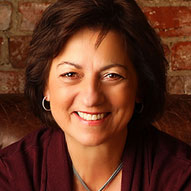
When someone tells you that they have a headache, it’s hard to imagine what they’re feeling. Do they mean that it hurts throughout their head or just over their left eye? Is their pain dull and achy, throbbing, burning, or sharp?
The Different Types of Headaches
The one true thing about headaches is that they come in all shapes and sizes. You may suffer from headaches every day or have an occasional whopper every couple of months. There are a number of different types of headaches, too. They include:
- Headaches caused by congestion, swollen sinuses, or a full-blown sinus infection. The pain from a sinus headache is usually felt in the front of your head, forehead and cheeks.
- Tension headaches, which are triggered by and the result of stressful situations, chronic stress, and emotional upsets. Frequently tension or stress headaches begin in your neck and shoulders, which are areas where it’s common to feel tightness when you’re under stress.
- Cluster headaches that can be intensely painful, usually one-sided, and with the pain that occurs near your eye or nose. They’re called cluster headaches because it’s common for them to occur in a group of frequent attacks, or clusters. Beyond sharp pain, this kind of headache may cause your nose to run or your affected eye to water.
- Rebound headaches are those that occur when you stop drinking coffee, caffeinated drinks, or certain medications. They tend to be dull and achy, and usually resolve after three or four days.
- Migraines are considered to be the mother of all headaches, and are actually considered to be a neurological event, with headaches as one of the most notable symptoms. Migraines tend to move through stages, are usually one-sided, and can be extremely painful.
Treating Headaches with Acupuncture
In Chinese medicine, the categorizations between headaches are a little different than that of Western medicine. The symptoms associated with your headache give your practitioner a number of clues to the state of your overall health—not just your headache. Essentially, your headache has a personality that mirrors the condition of your entire body.
Your headache may be dull and achy or sharp and stabbing. In general, mild and dull pain is an indicator of being depleted; along with your headache you may be run down or fatigued. These headaches tend to be chronic in nature. In contrast, a headache that is fixed, sharp, and intense is associated with some kind of blockage or constriction. In the case of your headache, it may be constricted blood vessels, contracted muscles, or both. While this type of headache can be chronic, they’re more likely to be acute, occurring less often than mild and dull headaches.
Triggers, or what sets off your headaches, can be extremely helpful in diagnosing and treating them. Some triggers are obvious, such as high levels of stress or quitting coffee. However, there are other triggers that are more subtle. For example, food intolerances are a common trigger for headaches, but can be very hard to identify. Variations in blood sugar, hunger, or becoming dehydrated can also be culprits. The weather is also a common cause of headaches for many people. Changes in the weather, a drop in barometric pressure, very cold or hot weather, and damp or humid conditions all can spark a headache for some sufferers. It’s also important to realize that it may be a combination of factors that is setting off your headache, which ultimately makes it harder to pinpoint.
Symptoms that accompany your headache are also a clue to what’s going on in Chinese medicine. For example, some people who suffer from migraines feel hot in their upper body or head during an attack, but others may feel chilled. Other symptoms that may occur during your headache include nausea and vomiting, sensitivity to light or sound, fatigue, and irritability. Knowing these symptoms are helpful to your practitioner in diagnosing and treating your headaches.
In Chinese medicine, illnesses and conditions are diagnosed according to patterns, or clusters of symptoms. This is true for headaches, as well. The nature of your headache symptoms, along with the condition of your overall health, determine the pattern—and the underlying cause—of your problem. In fact, your acupuncturist can’t begin to treat effectively until they’ve established the source of what’s making you ill.
If you choose to treat your headaches with acupuncture and Chinese medicine, your practitioner will develop a treatment strategy based on your unique combination of symptoms and overall pattern. They will likely combine a number of healing tools, starting with acupuncture. Your practitioner may also prescribe an herbal formula, which can be tailored to your specific needs. In addition, they may incorporate food therapy, lifestyle modifications, and stress relief strategies into your treatment plan. The bottom line is that while no two headaches are exactly alike, Chinese medicine can offer effective treatment for your unique symptoms.

Cindy Chamberlain is an acupuncturist in Overland Park, KS and the founder of Eastern Healing Solutions, LLC. She is licensed in Kansas and Missouri and has been practicing traditional Chinese medicine since 1996.


